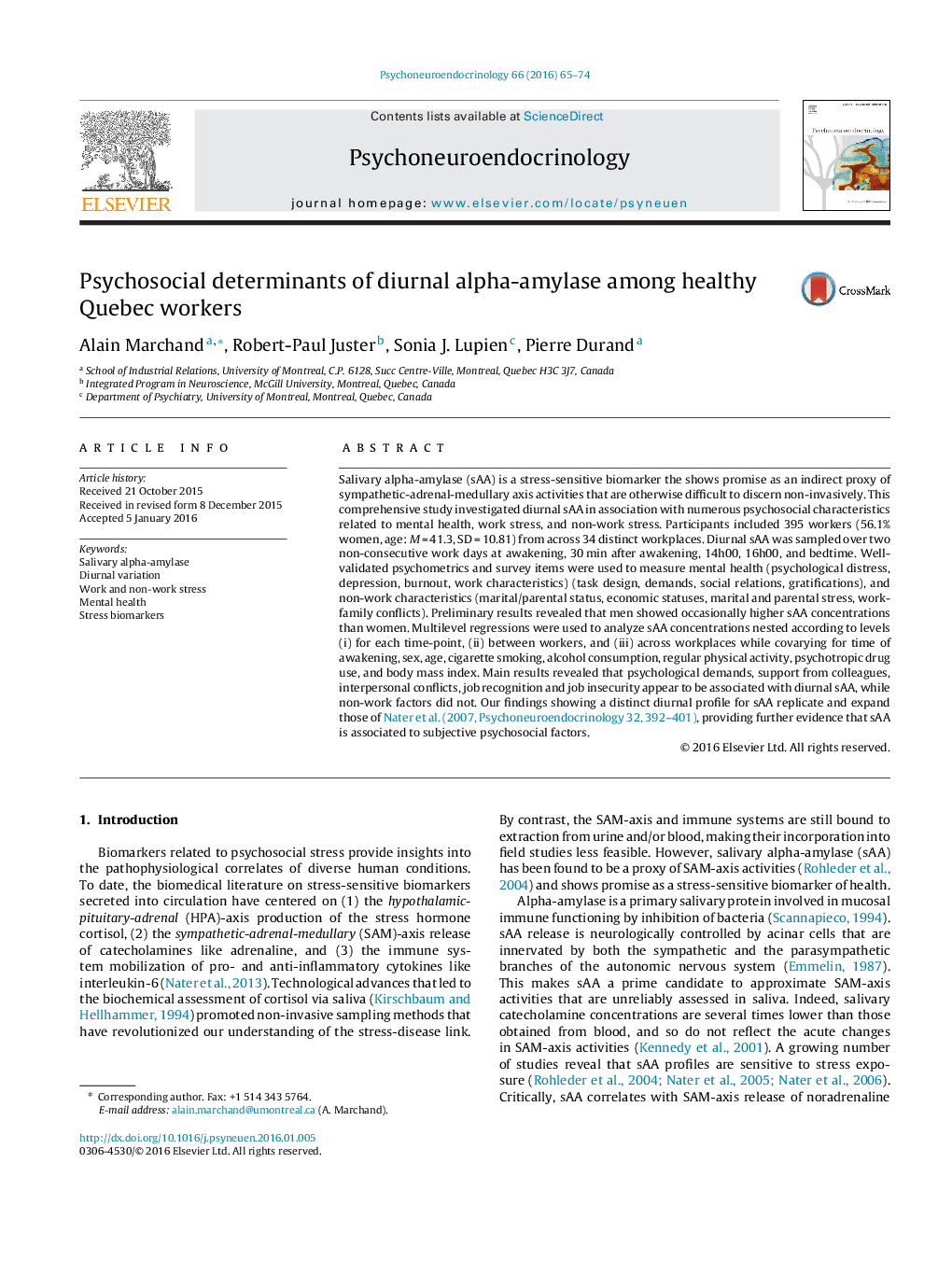| کد مقاله | کد نشریه | سال انتشار | مقاله انگلیسی | نسخه تمام متن |
|---|---|---|---|---|
| 336311 | 547112 | 2016 | 10 صفحه PDF | دانلود رایگان |
• Psychological demands, support from colleagues, interpersonal conflicts, job recognition and job insecurity are associated with diurnal salivary alpha-amylase profiles.
• Non-work factors did not relate to diurnal salivary alpha-amylase profiles.
• Sex did not interact with mental health symptoms, work and non-work factors and time of the day and diurnal salivary alpha-amylase profiles.
Salivary alpha-amylase (sAA) is a stress-sensitive biomarker the shows promise as an indirect proxy of sympathetic-adrenal-medullary axis activities that are otherwise difficult to discern non-invasively. This comprehensive study investigated diurnal sAA in association with numerous psychosocial characteristics related to mental health, work stress, and non-work stress. Participants included 395 workers (56.1% women, age: M = 41.3, SD = 10.81) from across 34 distinct workplaces. Diurnal sAA was sampled over two non-consecutive work days at awakening, 30 min after awakening, 14h00, 16h00, and bedtime. Well-validated psychometrics and survey items were used to measure mental health (psychological distress, depression, burnout, work characteristics) (task design, demands, social relations, gratifications), and non-work characteristics (marital/parental status, economic statuses, marital and parental stress, work-family conflicts). Preliminary results revealed that men showed occasionally higher sAA concentrations than women. Multilevel regressions were used to analyze sAA concentrations nested according to levels (i) for each time-point, (ii) between workers, and (iii) across workplaces while covarying for time of awakening, sex, age, cigarette smoking, alcohol consumption, regular physical activity, psychotropic drug use, and body mass index. Main results revealed that psychological demands, support from colleagues, interpersonal conflicts, job recognition and job insecurity appear to be associated with diurnal sAA, while non-work factors did not. Our findings showing a distinct diurnal profile for sAA replicate and expand those of Nater et al. (2007, Psychoneuroendocrinology 32, 392–401), providing further evidence that sAA is associated to subjective psychosocial factors.
Journal: Psychoneuroendocrinology - Volume 66, April 2016, Pages 65–74
